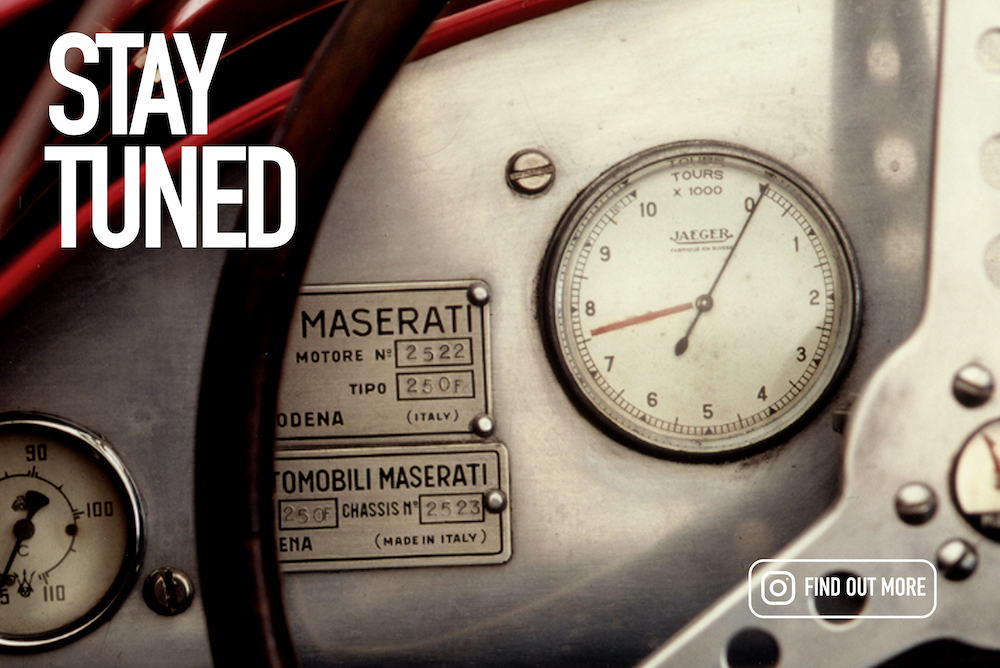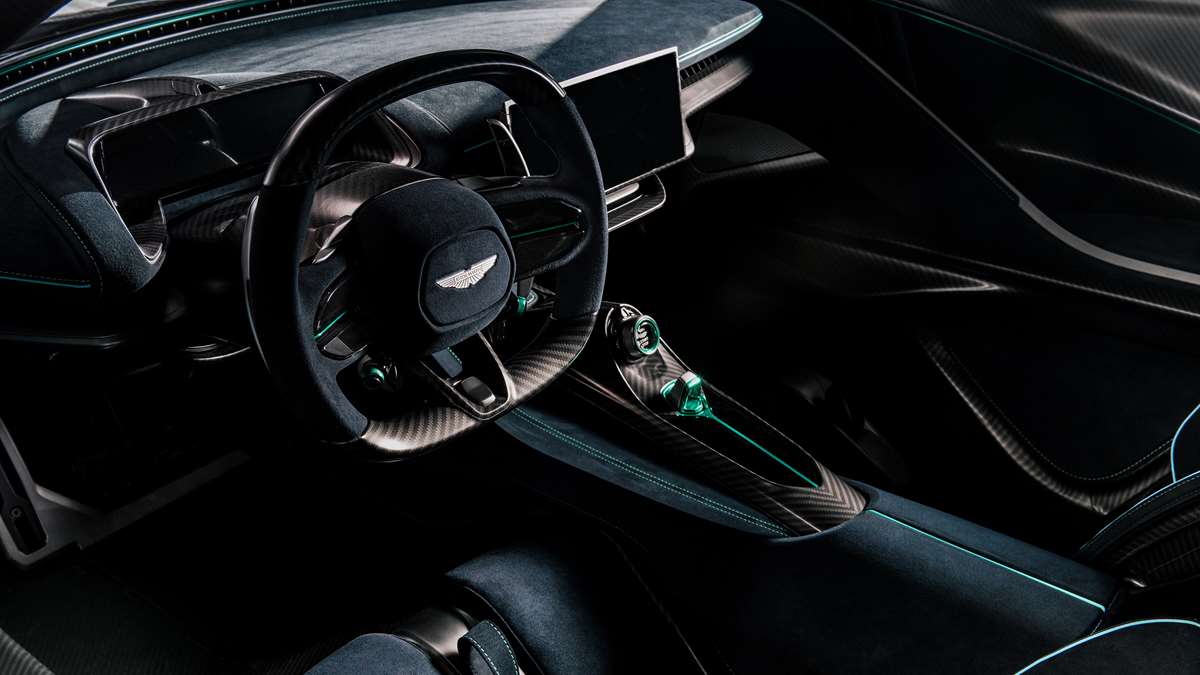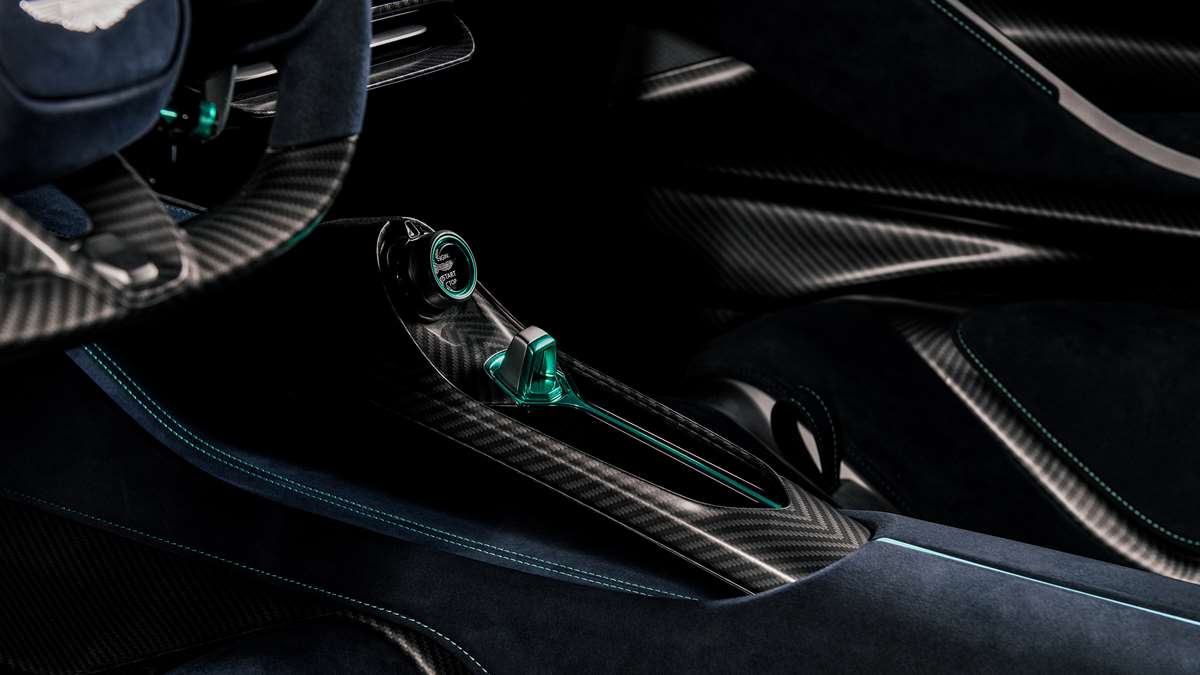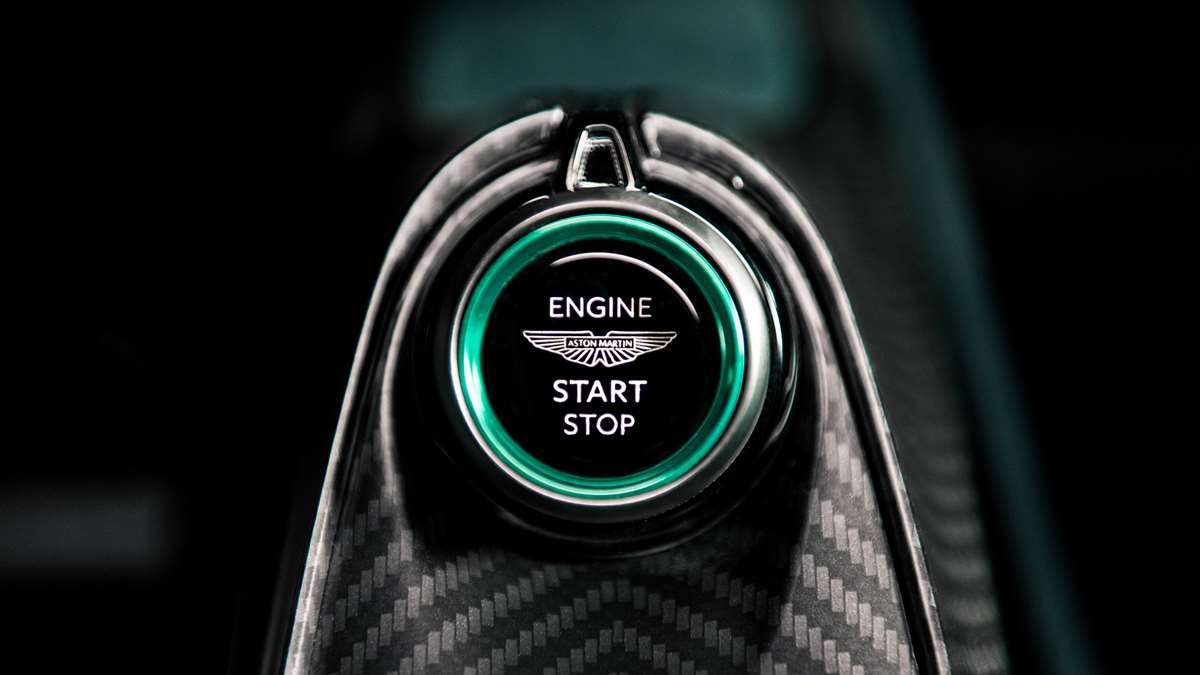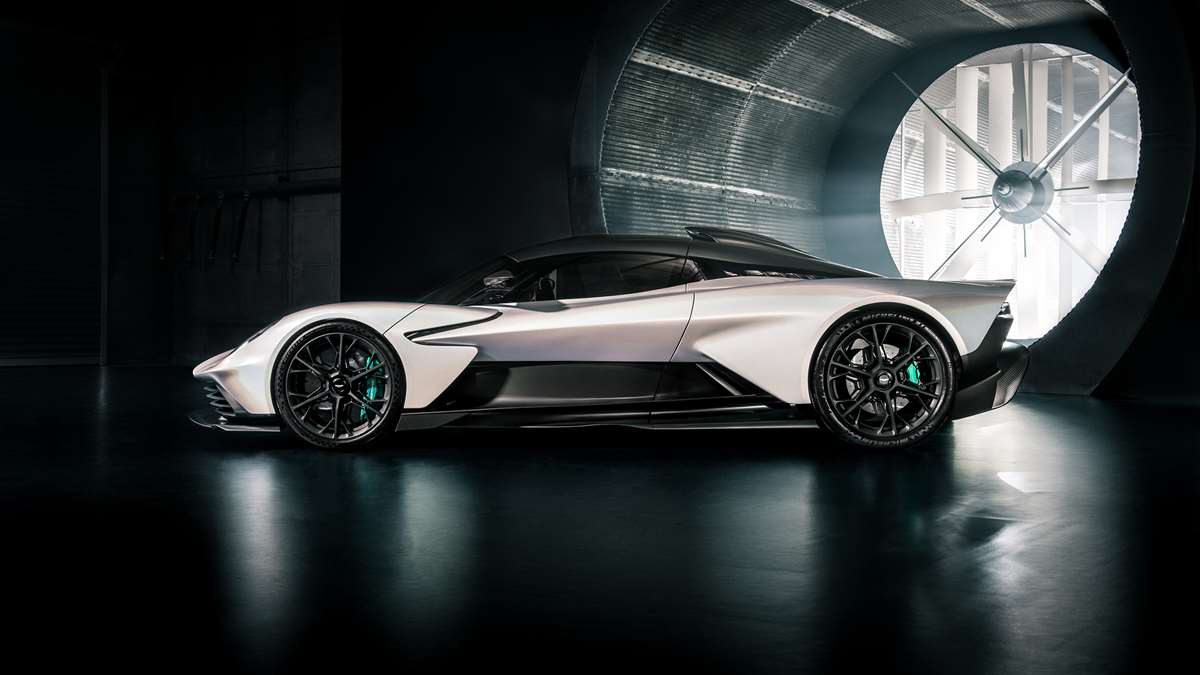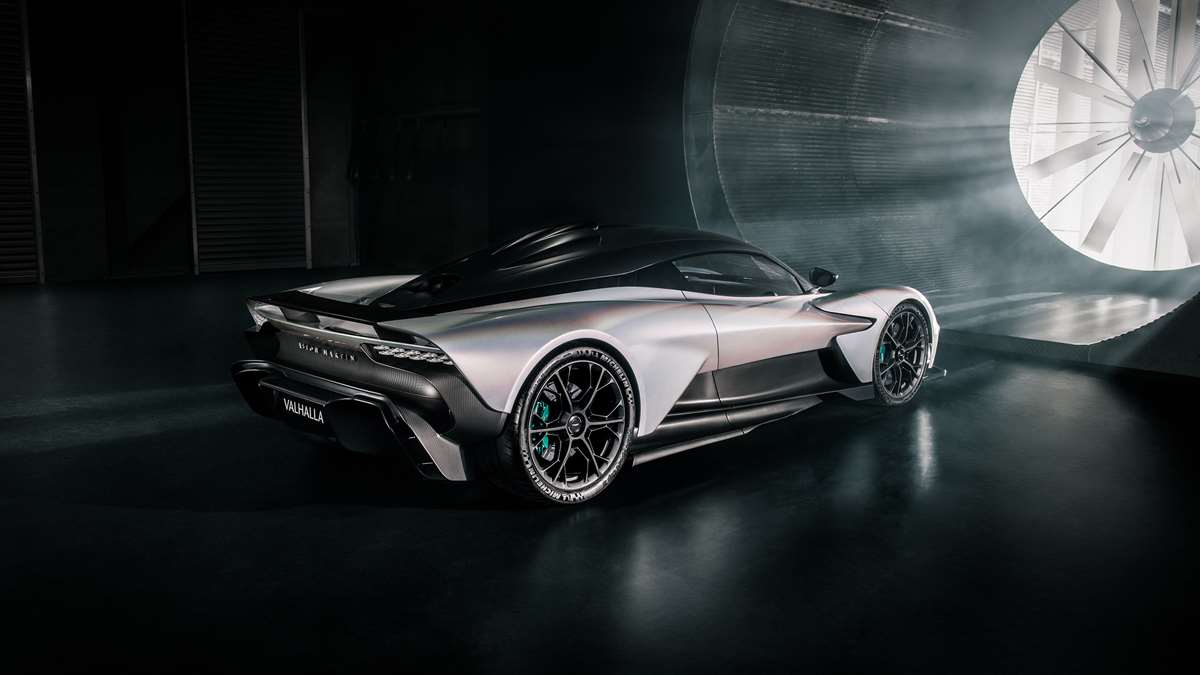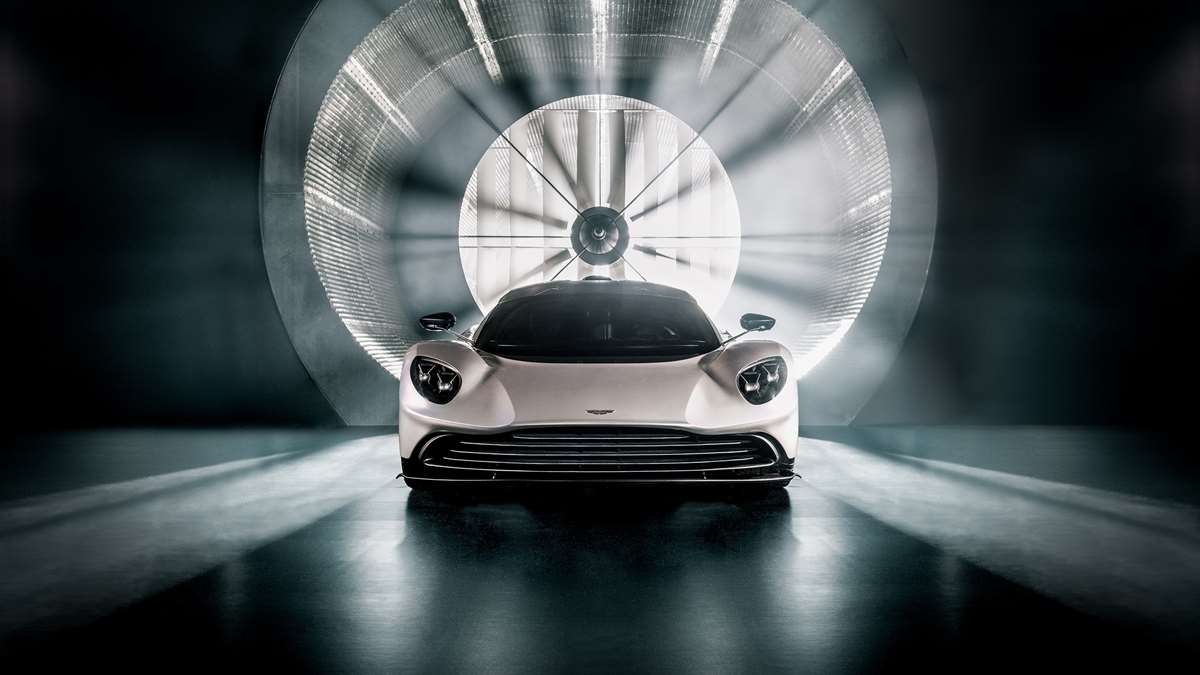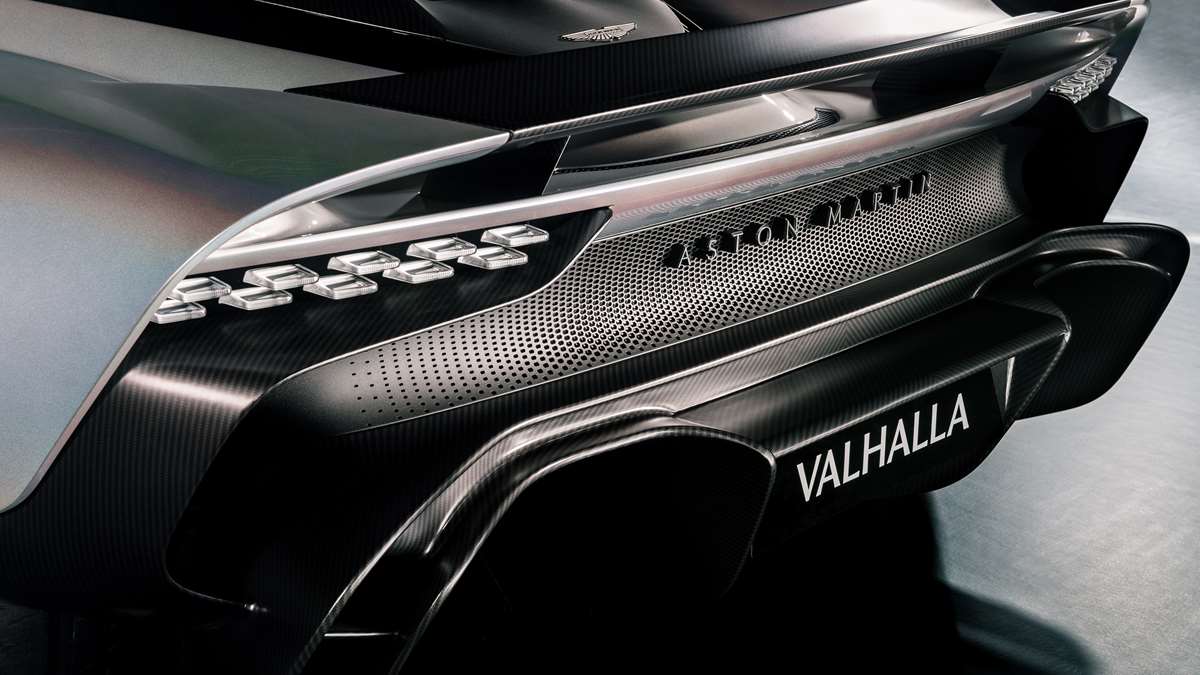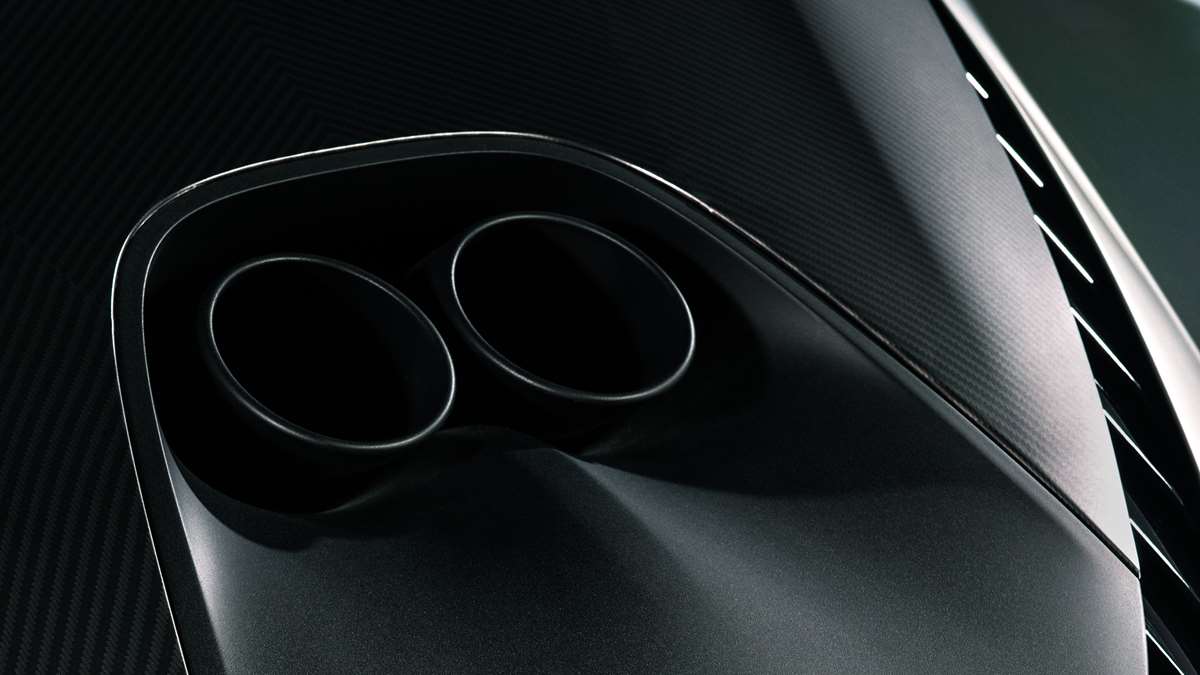The latest ‘F1-inspired’ road car is the Aston Martin Valhalla, the so-called ‘son of Valkyrie’, which the British marque is currently in the throes of polishing up ready for production. Like the Valkyrie and indeed the Mercedes-AMG One, this is another hypercar with direct input from in-house F1 talent – the folks that prepare Fernando Alonso’s weekend wheels. Exactly the nature of that input is what Aston has gone to the effort of clarifying with us today as well as showing off more of the car’s interior and confirming more powertrain details.
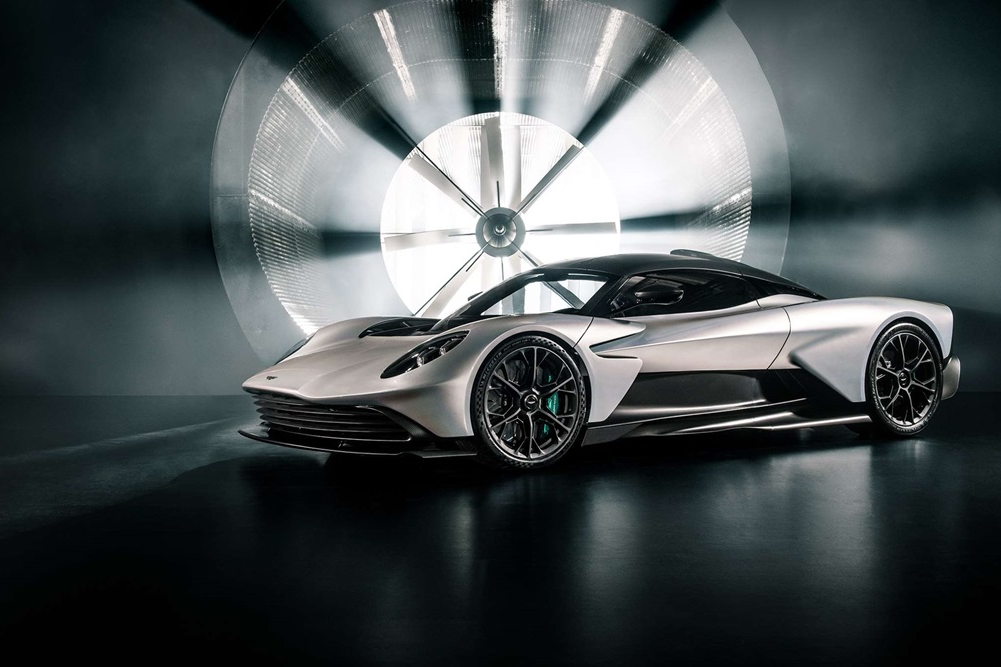
Aston Martin Valhalla – four-wheel-drive 1,012PS hybrid hypercar
We’ll address the latter first because, well, the numbers are quite exciting. We knew it was going to use a version of the four-litre flat-plane crank hot-V twin-turbo V8 from the AMG GT Black Series, in combination with a hybrid system. What we didn’t know was the exact make-up and output of the powertrain as a whole.
The engine will be working in tandem with three e-motors – two on the front axle and one in the transmission – to deliver a 1,012PS (744kW) system output to all four wheels. Yes, the Valhalla will be all-wheel drive, with the front electric motors handling reverse gear in addition to the transmission e-motor handling engine fire-up duties and ancillaries. The use of twin motors up front also opens up a world of possibilities in terms of torque vectoring.
It’s important to stress again that, unlike the Valkyrie, the Valhalla will be a series production car, offering performance, technology, but also general availability to match the Lamborghini Revuelto and Ferrari SF90. The F1 technical crossover comes courtesy of Aston Martin Performance Technologies, the consulting arm of the F1 constructor, with dynamics, aerodynamics and materials being the three key areas of development.
In terms of dynamics, more and more development is taking place in simulators, with the Valhalla taking shape up to 90 per cent completion virtually, before physical prototype verification begins. Speaking most to how much you can get done virtually now is the fact that the first road-going prototypes won’t hit the road until nearer the end of the year, even though production is expected to begin in 2024.
The interior of the Aston Martin Valhalla
Aston says AMPT also were involved with setting up the driving position and ergonomics of the cabin, with adjustability in the seating position to allowing an F1-like recline should the driver desire it. Even though Aston reckons this has allowed a lower-slung glasshouse, the Valhalla should still be a little more accommodating than the Valkyrie.
It certainly looks more inviting with an all-new steering wheel, much comfier-looking seats, plenty of premium trim and mood lighting. Compared to this, the Valkyrie’s cabin is more akin to a Le Mans racer… That’s not even considering the driver and infotainment displays. Remember the first Valhalla concept which explored the idea of using the driver’s mobile phone as the car’s infotainment to save weight? Novel, but with Aston having recently invested heavily in a next-generation digital UX, it’d be a shame not to get the full use out of it.
The exact truth to the time-honoured claim that the current roster of F1 drivers – Lance Stroll and Fernando Alonso in this case – are party to the car’s sign-off is unknown. The last we heard more about the Valhalla, it was of course then-driver Sebastian Vettel – now retired – on the case.
Aston Martin Valhalla – 600kg of downforce at 150mph
Where the latest F1 cars certainly have more in common these days with the likes of the Valhalla and Valkyrie is in aerodynamics. More specifically, the main areas of body they use to generate downforce. Not wings, not splitters even, but underfloor, ground effect aerodynamics. AMPT has been involved in refining the Valhalla’s shape and control surfaces from nose to tail.
Without F1 restrictions, the Valhalla is allowed active aero and can adjust movable surfaces front and rear to balance the car in corners at various speeds. It should be good for over 600kg of downforce at 150mph, claims Aston. There’s DRS at the front and rear for reduced drag, or full downforce modes. All of how the air travels over, under and through the car has been refined in F1-certified CFD programmes and wind tunnel tests, courtesy of AMPT.
Obviously F1 is a pioneer when it comes to the use of exotic materials for reduced weight and increased stiffness. As a result, the Valhalla’s constitution is constructed with the latest carbon fibre techniques, such as Resin-Transfer-Moulding and and autoclave treatment.
Aston’s first series production mid-engined supercar, on sale in 2024
When first announced, the Valhalla was destined to be another limited-run machine following directly in the footsteps of the Valkyrie, only this time using a bespoke V6. With the coming and going of perhaps more sensible leadership in the interim, the plan changed somewhat, with the Valhalla reducing in price by swapping the expensive in-house engine for a Mercedes V8 and going full rather than limited-production, to give Aston a contender against the aforementioned rivals from Ferrari and Lamborghini.
Going series production with a carbon-fibre tub is no small challenge, so who better to be at the helm of such a project than Carlo Della Casa, former McLaren Chief Technical Officer, now Aston Martin’s Director of Product Development. Still, he insists that it’s the F1 element that’s the most valuable to the development of the car.
“The knowledge and experience of the AMF1 team personnel at Aston Martin Performance Technologies combined with the skills and knowhow of our road car development teams has enabled us to bring direct F1 learnings to sportscar development,” Della Casa said.
“Our target for Valhalla is to produce a supercar that will set best-in-class standards for performance, dynamics and driving pleasure. Valhalla will use active technologies to reduce the gap between the ‘Gentlemen driver’ and the professional one on track. Having open access to the knowledge within the AMF1 team has been a huge advantage for us as we develop this incredible car.”
Report by Ethan Jupp
find more news here…
